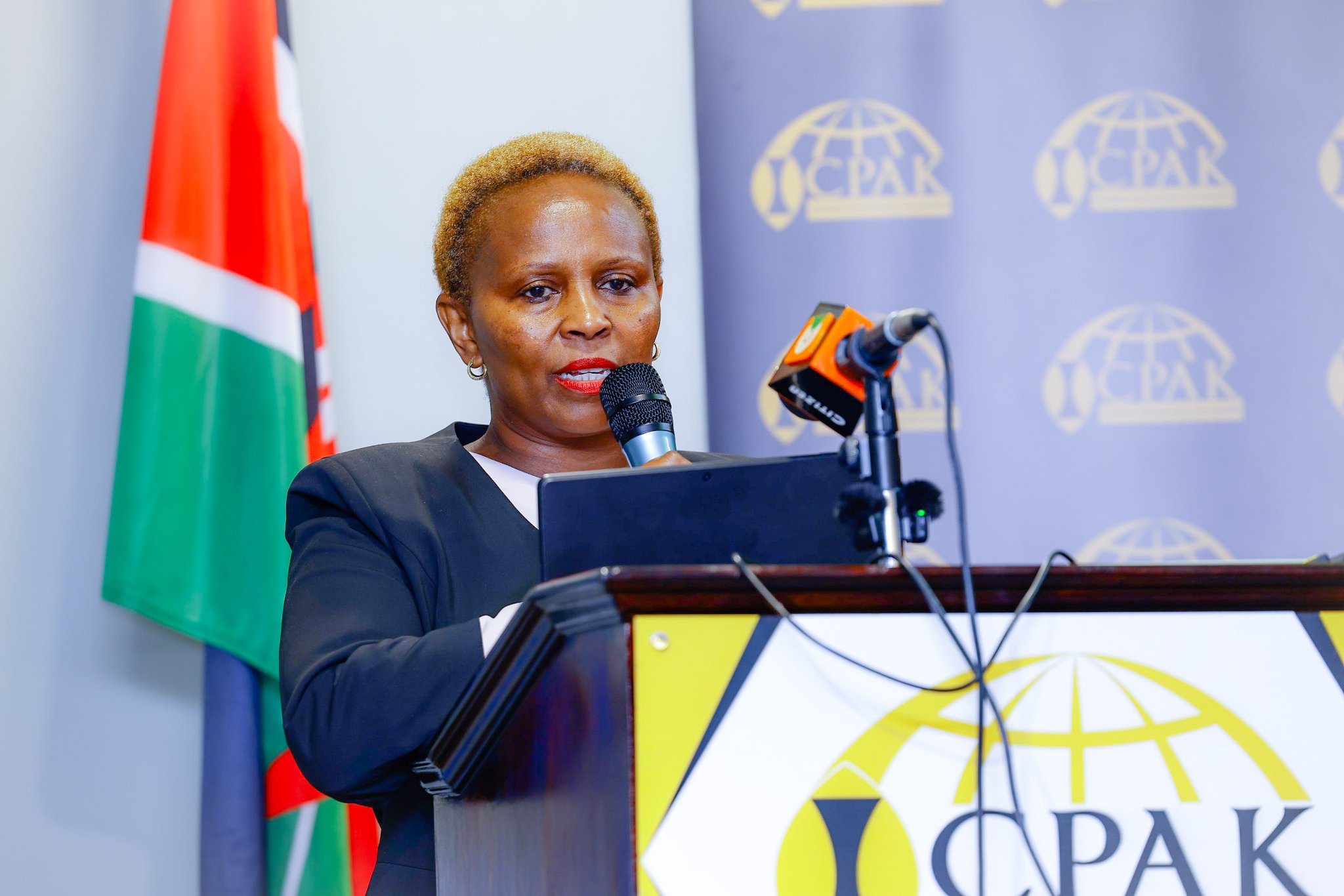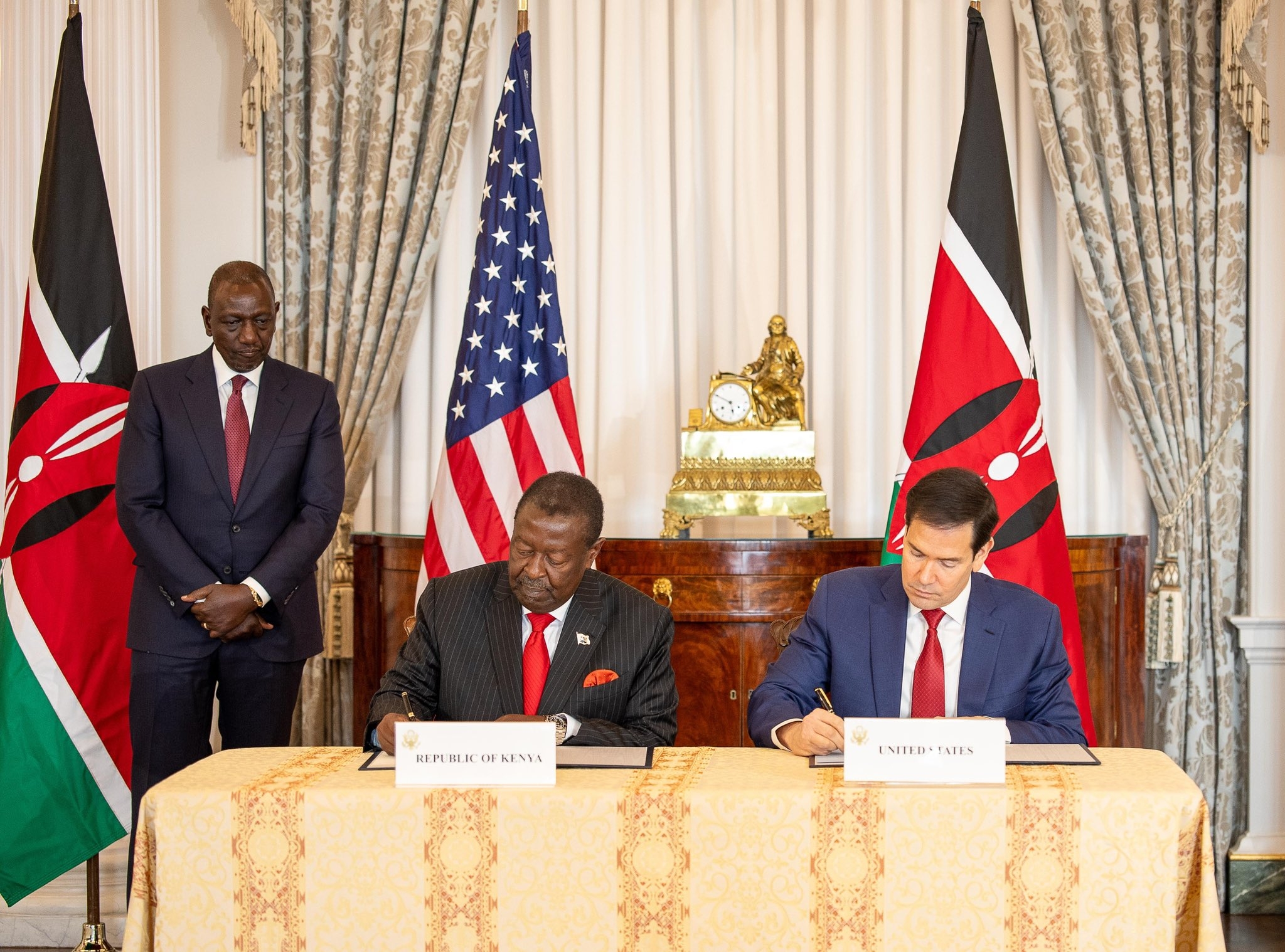
 CPA Prof Elizabeth Kalunda is the
ICPAK Chair
CPA Prof Elizabeth Kalunda is the
ICPAK ChairThe Institute of Certified Public Accountants of Kenya (ICPAK) has intensified its campaign to strengthen accountability in the management of public funds, shining a spotlight on weaknesses in financial reporting across key government ministries, departments, and agencies (MDAs).
This is in line with our mandate to advise on financial accountability and the economy at large.
Part of our work has been to support the auditor general’s office to amplify findings of her reports and push for implementation of her recommendations.
Subsequently, on 14th October 2025, the launched the third phase of its latest Public Audit Review focusing on the National Government.
This review considered the audited financial statements of Ministries, Departments and Agencies for the financial years 2020/21, 2021/22, and 2022/23.
It sought to generate insights that encourage value for money and more effective oversight by key stakeholders including Parliament, regulatory agencies, civil society, academia, and the public.
This follows similar assessments of County Executives and County Assemblies released last year.
The review examined audited financial statements for the 2020/21, 2021/22, and 2022/23 financial years, uncovering persistent gaps in financial governance.
This review is anchored in the principles enshrined in Article 229 of the Constitution and Section 7(1)(a) of the Public Audit Act, 2015, which empower the Office of the Auditor-General to assess the use of public funds and to provide assurance on the effectiveness of internal controls, governance, and risk management frameworks across public entities
The resultant report highlights several concerns that continue to undermine public finance management at the national level. Key among them is the professional status of financial statement signatories.
In several entities, individuals signing off on financial reports were not in good standing with ICPAK, raising compliance concerns.
The Institute will continue to engage with our members holding these positions through sensitization sessions and capacity building to bridge any gaps.
ICPAK also flagged recurrent and unresolved audit queries, including unsupported expenditures, irregular procurements, and incomplete financial records; issues that have featured repeatedly in reports by the Office of the Auditor-General. This points to the weak implementation framework by all parties involved.
The review further points to weak oversight structures and inadequate internal controls, including poor cash flow management, missing asset registers, and inconsistent financial reporting frameworks.
The move to review MDAs follows ICPAK’s earlier work at the county level. After publishing County Executive and Assembly audit reviews, the Institute launched targeted interventions to address audit concerns.
These included direct engagements with counties, signing MoUs to ensure finance dockets are staffed by qualified accountants, and initiating legislative reforms to embed professional accountability in public financial management.
ICPAK also integrated audit insights into its training programs and proposed sanctions and penalties to enforce compliance.
Hopefully, these interventions will bear fruit and lead to more accountability, value for money and better service delivery to the Kenyan citizens.
In its recommendations, the Institute has urged financial statement preparers and signatories to comply fully with professional and regulatory standards.
The Institute is also calling on the Office of the Auditor-General, Parliament and the National Treasury among other stakeholders to enforce the requirement that preparers of public financial statements must be ICPAK members in good standing.
Parliament, in particular, is encouraged to strengthen oversight mechanisms by ensuring audit recommendations are acted upon and tracked.
Entities will persistent modified opinions should be summoned and urged to put in mechanisms for accountability and prudence utilization of public resources.
Civil society, academia, and development partners are invited to collaborate in building capacity and promoting a culture of transparency across all levels of government.
At ICPAK, we pride ourselves with standing by and supporting integrity. Indeed, we live by our tagline, “where integrity counts”.
It is my considered opinion that by weaving credibility, professionalism and accountability into every strand if governance, Kenya can nurture a public finance system rooted in integrity.
This will be a system that not only manages public resources wisely, but also earns the enduring trust and confidence of the Kenyan citizenry.
As the government continues to push public finance reforms, including the push for zero fault audit regime, ICPAK’s findings and recommendations could shape the next phase of transparency and fiscal discipline in Kenya’s public sector. I look to the future with optimism and hope- — for within every public finance reform lies the seed of renewal, and in every act of accountability, the promise of a nation that stewards its resources prudently.
The writer is CPA Prof Elizabeth Kalunda is the ICPAK Chair.

















